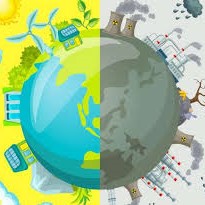The year 2020 has been a bearer of terrible news from the day it began its journey on the calendar. Horrifying forest fires in Australia, deaths of eminent international personalities, unfortunate incidents and the most unexpected of all – a global pandemic in form of the COVID-19 outbreak. With confirmed cases crossing 4.5 million across nations, people are in the middle of a conscious nightmare everyday. Lives being lost daily due to the virus has become a normal occurrence. Most regular street lurkers are being forced to isolate due to the lockdown specifics. Government officials, essential service providers and the forces remained the only few sections of society that continued their work, which was intensified due to the crisis. In India, the lockdown was allegedly imposed as a precautionary measure and it was only after approximately seventy-five days that people saw some relaxations in the stringent measures taken by the state and the Centre.
Journalism, referred to as the fourth estate, saw a forceful shift from the traditional print and broadcast blueprint to a more flexible utilization of digital platforms. Sets and animated back drops were replaced by in-house informal segments. The most unfortunate role that this informal setting played was in the dissemination of numerous news forwards on the chat application ‘WhatsApp.’ Panic amongst the public added fuel to this process of spreading unauthentic information. During a stressful situation such as the one we’re in, people’s anxieties are heightened and media can play an important role in calming down the nation. Unfortunately fear mongering has never been higher than it is right now. Most media houses are more invested towards speaking about the negatives of this virus rather than explain to the people, clearly, what we as a nation can do in order to prevent its spread. Many individuals still do not understand the different zones, (green, red and containment) that the cities have been divided into. They are so obsessed with the wrongdoing of the government that they are ignoring the valuable information given by our scientists in fighting this pandemic. As an estate, media has unfortunately failed its people at the time most needed in the smooth flow of information.

Social Media, however, has been the go-to platform for people looking for updates in form of memes, videos and roasts on international news. The irony is more real than it has ever been. It became a platform for not just entertainment but also for education, infotainment, awareness, international news and love. Its hype and usage skyrocketed like never before, paved way for institutions like colleges and schools to have interactive online classes when being physically present became a danger and students were asked to hand in digital assignments. Digital media became a safe haven like never before. Celebrities too played a major part it in, encouraging their fans to spend their time in productive ways rather than wasting time, posting work out videos (so much so that Bollywood director, Farah Khan asked them to stop), making art (like Bollywood tycoon Salman Khan did) and taking time off their life in the city to just relax and breath in towns and villages.
Facebook and Snapchat saw a 50% hike and TikTok, Pinterest and YouTube became a go to place for DIY’s tutorials for the bored beings. The craze and fandom of Korean dramas and Chinese dramas hit a new height. People now could pick up a series of 50-60 episodes of Xianxia (i.e supernatural historical fantasy) dramas that would not have been possible in their otherwise busy lives with the help of Netflix and apps like Viu, iQiyi and WeTv. Overall phones and TV became a constant fixation that sleep or food could not fill.
To conclude, an overall change is observed in the means and methods used by the fourth estate. Considering all the losses faced as an industry, it’s crucial nature still remains intact. Almost every global citizen hopes for a safe future to unfold and the media shall always remain as the fundamental approach to anything at a societal level and beyond.



